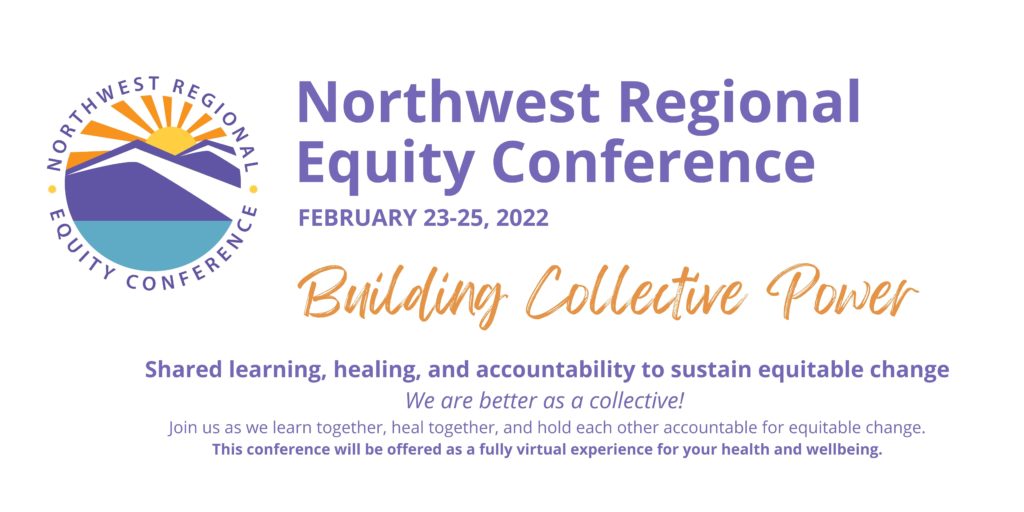Northwest Regional Equity Conference (NWREC)
Date
Time
Location
Online

Date: February 25, 2022
Time: 1:30 PM-2:45 PM
The Northwest Regional Equity Conference (NWREC) aims to improve equitable, sustainable experiences and outcomes for systemically underrepresented populations through inclusive and anti-racist strategies.
This conference is geared toward educators, administrators, non-profit, governmental, and other professionals and individuals across the region who would like to broaden their social justice knowledge or remove institutional barriers for systemically underrepresented populations.
This year’s theme is Building Collective Power: Shared Learning, Healing, and Accountability to Sustain Equitable Change. We will have powerful speakers and amazing workshops for your engagement.
KEYNOTE – Weaving Crip, Mad, Queer, Trans Dreams: Disability Justice for Our Futures and Our Freedom
Disability Justice is a radically intersectional framework necessary to sharpen our political analysis, clarify our demands, and shape our everyday activism and organizing practice. Disability Justice offers radical and revolutionary ways of reimagining our relationships with ourselves, each other, and the communities where we live, work, and learn. During the global COVID-19 pandemic, Disability Justice offers urgent and vital interventions for addressing and ending the myriad harms of race science/eugenics, the medical/carceral industrial complex, and capitalist oppression. Disability Justice enables us to understand and examine interpersonal, systemic, structural, and institutional ableism and its intersections via legacies of pathologization with queermisia and transmisia, capitalism, settler-colonialism, and white supremacy. Disabled people at the margins of the margins have always been at the forefront of movements for justice and freedom, building networks of care and solidarity, and creating social and cultural transformations that enable us to experience rest and practice active love as co-teachers and co-learners.
- Lydia X. Z. Brown, Policy Counsel, Privacy & Data Project, Center for Democracy & Technology